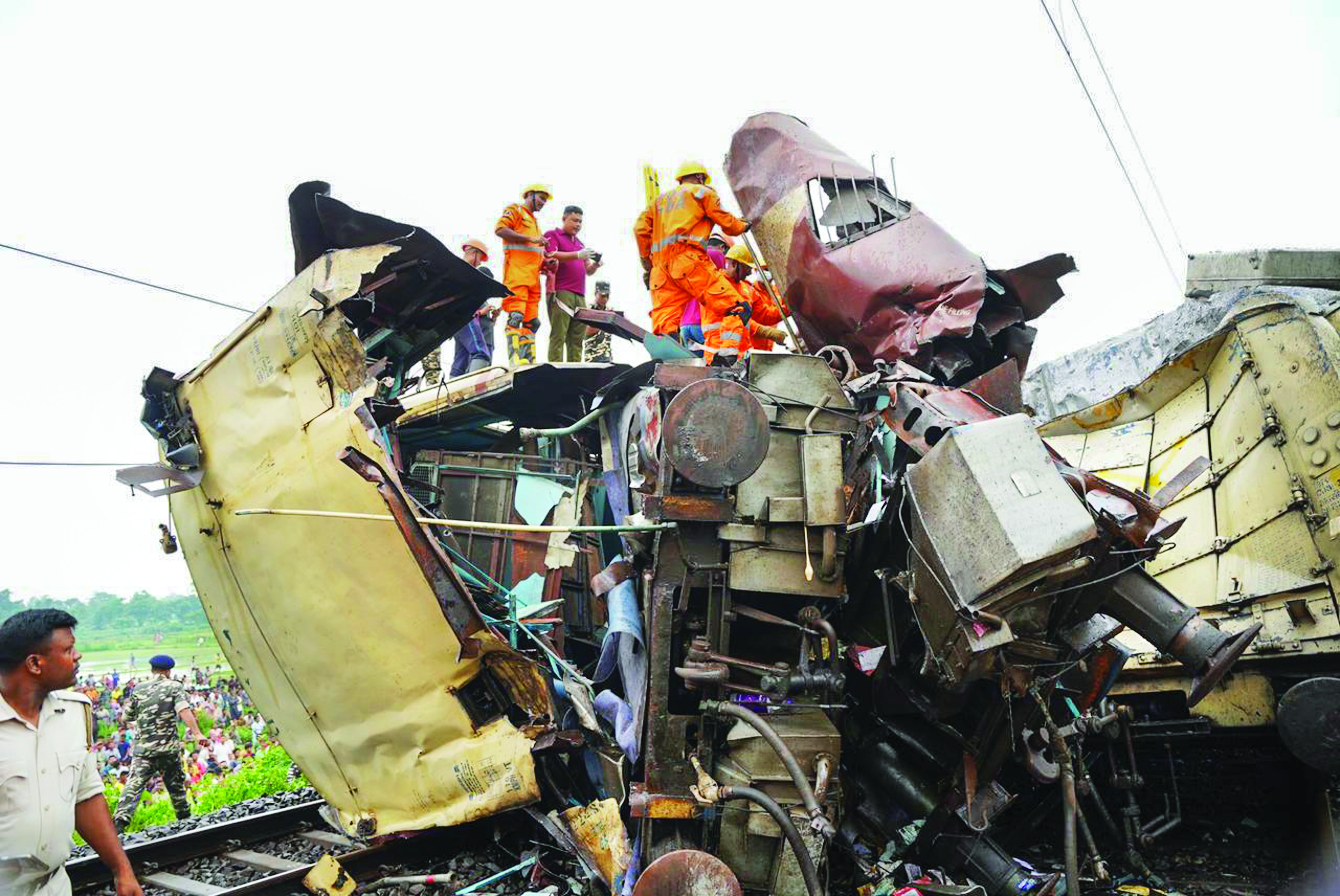Rangapani train mishap raises questions on ‘implementation of Kavach system’

Kolkata: The collision between a goods train and the rear of the Sealdah-bound Kanchanjungha Express at Rangapani on Monday evoked chilling memories of the train disaster at Bahanaga Bazar Railway Station in Odisha on June 2 last year, where 293 lives were tragically lost.
The accident has refocused attention on the automatic train protection system ‘Kavach’, designed as an essential ‘anti-collision’ measure for railway safety. Chairman and CEO of the Railway Board, Jaya Varma Sinha, stated that the loco pilot of the freight train “disregarded the signal.” Sinha indicated that initial findings suggest human error may have been the cause of the accident, which resulted in the tragic loss of at least nine lives and injuries to over 25 individuals. Discussion over the Kavach system arose as it is intended to mitigate such human errors.
The system was designed to prevent accidents by Signal Passed at Danger (SPAD), which according to news reports are the leading cause of train collisions. Sinha on Monday informed that the Kavach system was not available on the Guwahati route. She further stated that Bengal is included in the plan to cover 3,000 kilometres by the Kavach system by this year. According to Sinha, 1,500 kilometres is currently covered by the system and there is a plan to add 3,000 kilometres by this year. She said that it needs to be built up gradually to cover the entire country as the producers will also have to ramp up its supply.
“Sooner we are able to proliferate it, the better it will be,” she said, during a press conference on Monday. In the Railway Budget 2016-17, Mission Zero Accident was announced as a significant initiative. One of its sub-missions, the Train Collision Avoidance System (TCAS), aims to prevent collisions and instances of signal passing at danger by developing indigenous technology for Loco Pilots.
Two years after its launch, in 2019, no passenger lost their lives in consequential train accidents. Based on the information given by the former minister of Railways Piyush Goyal in a written reply to a question in Lok Sabha in 2020, 397 people lost their lives in train accidents between 2014 to 2019. According to the figures provided in the National Crime Records Bureau (NCRB) 2022, out of 23,139 cases of railway accidents reported, 903 cases were due to mechanical defects, which include poor design, track faults and bridge or tunnel collapse. It led to the loss of 907 lives in railway accidents in 2022. Congress’s communication-in-charge Jairam Ramesh on X handle claimed that since August 2021, 329 lives were lost due to train accidents and security issues. As per a news report, India’s Comptroller and Auditor General (CAG) noted that Indian Railways recorded 2,017 accidents from 2017 to 2021. Derailments accounted for 69 per cent of the accidents, resulting in 293 deaths.
In 2023, 293 people lost their lives in the Balasore triple train collision. More than 1000 people were injured after the Shalimar-Chennai Coromandal Express collided with a goods train at Bahanaga Bazar Railway Station in Odisha. A few of its coaches fell on the side-line on which the Bengaluru-Howrah Superfast Express was passing, which led to the derailment of two of its coaches.



